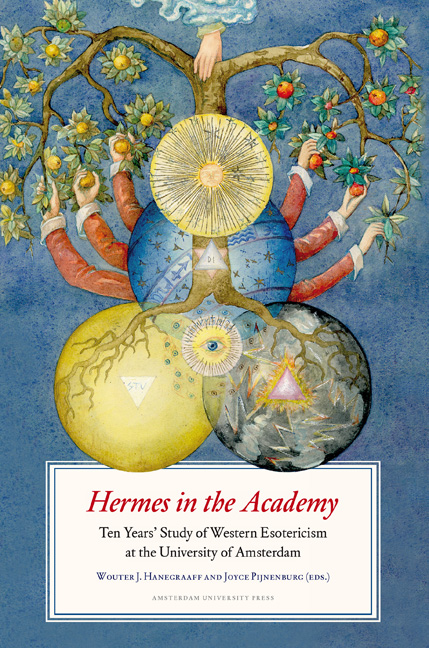The Birth of a Chair
Published online by Cambridge University Press: 20 January 2021
Summary
Prior to 1999, it was impossible to study Hermetic philosophy at a Dutch university. The Hermetic combination of mysticism and philosophy smelled too much of pre-Enlightenment times and, still worse, of modern New Age ideas to be attractive to academic philosophers – let alone that they would give it a place in their teaching programs. This was Mrs. Rosalie Basten's disappointing experience as she studied philosophy at the University of Amsterdam in the mid- 1980s and wanted to specialize in this special branch of mystical philosophy. But sometimes frustration about an existing situation becomes an incentive to change it. In Mrs. Basten it raised the ambition to establish a Chair of History of Hermetic Philosophy at one of the Belgian or Dutch universities.
However, ”… between dream and deed, laws stand in the way, and practical objections,” as a famous line of Dutch poetry reads – and indeed, this dream was not an easy one to realize. Especially in academic circles, the common antipathy against esotericism and obscurantism made it almost inconceivable that one could study modern Hermetic and esoteric traditions without being an obscurantist oneself. But, in the summer of 1997, Mrs. Basten felt that the time was ripe for a concrete and definitive proposal to a Dutch university. At that time, the terms “Hermetic philosophy” and “Hermetic traditions” were beginning to mean something to the Dutch public and to policymakers, because the threatening dispersion of the famous Bibliotheca Philosophica Hermetica, founded by Mr. J.R. Ritman, was attracting much attention in the popular media. However, Mrs. Basten also realized that university boards are willing to accept an externally financed chair only if the proposed teaching and research programs can be shown to meet the academic standards of independence and good quality and fill an obvious gap in the current curriculum. It is at this point that I became involved in this story.
Mrs. Basten knew of my existence through the Dutch translation of the Corpus Hermeticum that Gilles Quispel and I had published in 1990. She hoped that I would be interested in her plan and might be of some help in its realization. At our first meeting, in Antwerp on July 23, 1997, she explained her intentions and asked me to join her efforts.
- Type
- Chapter
- Information
- Hermes in the Academy , pp. 11 - 16Publisher: Amsterdam University PressPrint publication year: 2009
- 1
- Cited by

